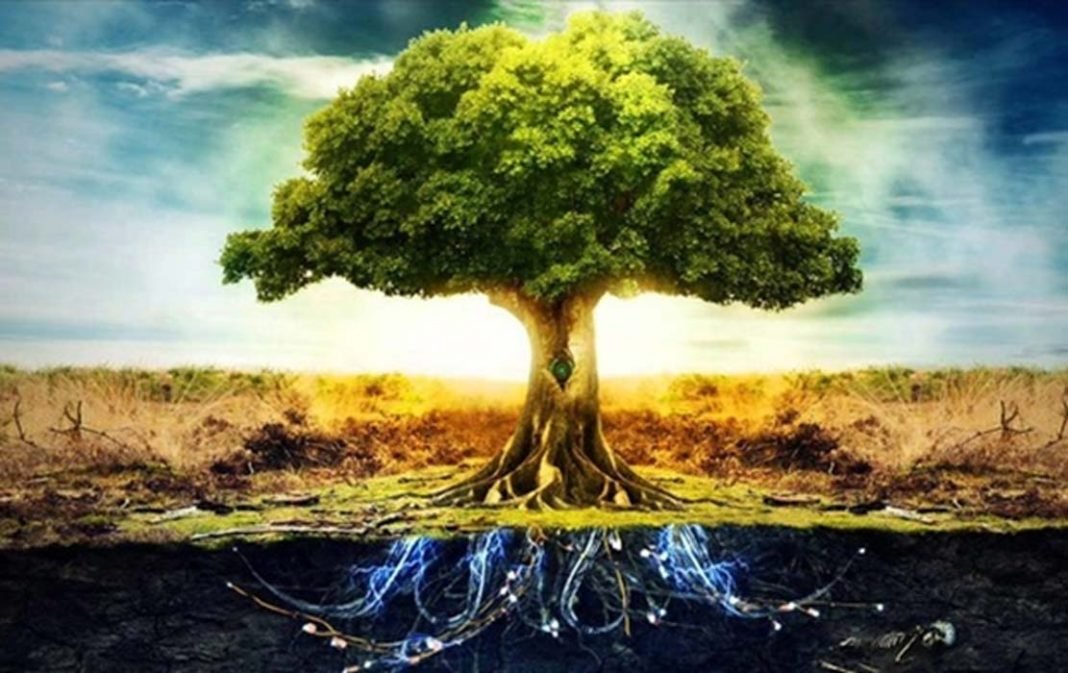I have grouped the many articles on this site under the collective title, ‘Elemental Living’. I thought that it was probably worthwhile explaining what I mean by this so offer the following by way of providing a philosophical framework for my ponderings. KJ Parker
In a world increasingly driven by speed, separation, and synthetic solutions, Elemental Living calls us back—back to the soil beneath our feet, the air in our lungs, the water in our cells, the fire in our spirit, and the spacious awareness that holds it all. This is more than a lifestyle. It is a philosophical framework, a lived practice, and a spiritual ecology. It is about becoming attuned to the natural world and its subtle intelligences, while simultaneously embracing emerging understandings from quantum science, energy medicine, and consciousness studies.
The Meaning Behind “Elemental”
At its core, the word elemental speaks to fundamental forces—the classical elements of Earth, Air, Fire, Water, and Aether (or Space). These elements, revered across cultures and ages, are not just symbolic—they are energetic archetypes and lived realities. In Elemental Living, we learn to recognize how these forces manifest in both nature and self:
- Earth: grounding, body, stability, nourishment, belonging
- Water: emotion, intuition, flow, adaptability, cleansing
- Fire: vitality, willpower, transformation, passion
- Air: intellect, communication, breath, vision
- Aether/Space: consciousness, spirit, silence, spaciousness
This is not mere poetic philosophy—it is a framework for attunement and alignment. When these elements are recognized, honored, and balanced within us and around us, we live more whole, more present, more empowered.
Living in Right Relationship
Elemental Living asks:
What does it mean to live in right relationship—with the land, with energy, with others, and with the unseen?
This includes:
- Eco-spiritual awareness: A reverence for the natural world as alive, sentient, and sacred—echoing Indigenous and shamanic cosmologies.
- Nature as teacher: Seeing forests, rivers, animals, and weather not merely as resources, but as conscious allies.
- Energy literacy: Engaging with subtle energies through practices such as dowsing, Reiki, light codes, and vibrational healing to bring harmony to body, home, and environment.
- Spiritual ecology: Understanding our role not as dominators of Earth, but as conscious participants in a vast interconnected web of life.
The Quantum Edge of Earth Wisdom
Modern science, particularly quantum theory, increasingly echoes the mystical and elemental views of ancient traditions. Quantum fields, nonlocality, entanglement, and the observer effect are not just curiosities—they point toward a deep interconnectivity and intelligence within the fabric of reality.
In Elemental Living, these scientific discoveries are not separated from spiritual knowing. They validate and inform the experiences of shamans, mystics, and seers who have long perceived the world as a field of living energy.
This framework invites practices such as:
- Quantum Dowsing: Using tools and intention to interface with energetic fields beyond the material.
- Sacred Geometry: Engaging with the hidden architecture of reality—symbols, frequencies, and harmonics that align with natural order.
- Mindfulness and Meditation: Cultivating presence to deepen our attunement with life’s subtle layers.
- Ritual and Ceremony: Working with time-honored practices to enter into conscious co-creation with the unseen realms.
Healing Through Elemental Harmony
When we live elementally, we recognize that healing is not just about treating symptoms but about restoring resonance:
- Healing our bodies with the rhythms of nature and food as medicine
- Healing our minds by integrating mindfulness, breathwork, and conscious focus
- Healing our energy through sound, frequency, and intention
- Healing our planet by returning to reciprocal relationship with the Earth
Whether through forest bathing, working with nature spirits and devas, or engaging in sacred land healing practices, Elemental Living restores the ancient idea that healing is communal—a conversation between the human and more-than-human worlds.
Applications: From Philosophy to Practice
On this site, Elemental Living is the central organizing theme that brings together a range of modalities, teachings, and insights:
- Green Living & Sacred Ecology
- Shamanic Practices & Nature Communication
- Alternative Energy Healing
- Dowsing & Subtle Perception
- Meditation, Mindfulness & Conscious Embodiment
- Light Language, Sacred Sound & Frequency Healing
- Working with Nature Spirits, Star Beings & Parallel Dimensions
- Quantum Perspectives on Healing & Interbeing
You will find guides, tools, blog posts, workshops, and personal reflections—all intended to support the integration of the sacred and the practical, the spiritual and the ecological, the ancient and the emerging.
A Path Forward
In a time of planetary uncertainty, Elemental Living is not a retreat from the world—it is a return to deeper reality. It is a call to remember that our bodies are made of stardust, our breath is shared with trees, and our thoughts ripple through invisible fields of possibility.
It is time to live as if everything is alive—because it is.
Time to align with the elemental powers that dwell within and around us.
Time to remember ourselves as sacred participants in a living cosmos.
Welcome to Elemental Living—may it nourish, awaken, and inspire you.
